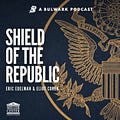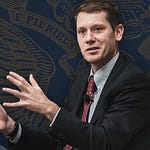A solo Eric welcomes Gönül Tol, the founding Director of the Turkey Program at the Middle East Institute in Washington DC to discuss her new book, Erdogan's War: A Strongman's Struggle at Home and in Syria, (New York: Oxford University Press, 2023) and her perspective on the upcoming Turkish elections on May 14. They discuss the complex inter-relationship between Erdogan's foreign policy and his domestic aspirations to move Turkey in an authoritarian direction, Erdogan's thirst for power and his pragmatism in pursuing Islamist, socially conservative and Nationalist constituencies as circumstances have changed, the impact of 20 years of AKP rule on Turkish society, and the prospects for the united opposition "Table of Six" in the election. They also touch on the potential for election fraud and Erdogan refusing to leave office despite the outcome of the vote. Finally, they touch on the reaction of civil society and the mess that the opposition will inherit if they win the elections.
https://www.amazon.com/Erdoğans-War-Strongmans-Struggle-Syria/dp/0197677320
https://www.mei.edu/blog/turkish-election-watch-week-april-23-30
https://www.ft.com/content/fd31eff7-b5e2-4424-82ed-215a93837c27
Shield of the Republic is a Bulwark podcast co-sponsored by the Miller Center of Public Affairs at the University of Virginia. Email us with your feedback at shieldoftherepublic@gmail.com
Learn more about your ad choices. Visit podcastchoices.com/adchoices












Potential for Regime Change in Ankara